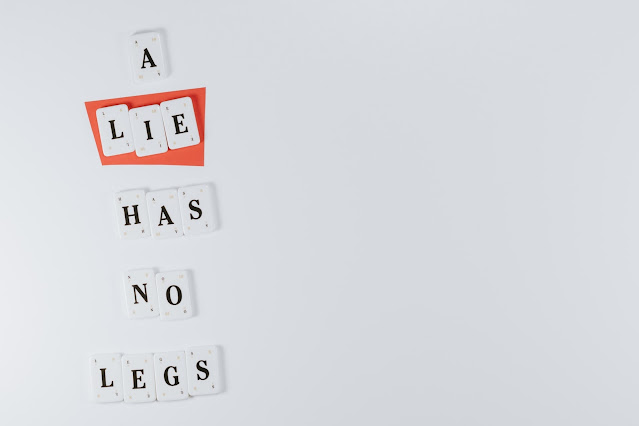Most people are no better than chimpanzees at detecting lies. Since we hear as many as 200 lies a day, we live with a hidden problem most of us are unaware of.
 |
| Photo by Pawel Czerwinski on Unsplash |
With training in the basics of deception detection, we can significantly improve our liespotting skills. How much do you know about liespotting? Before you step into real-world situations that demand watchful eyes and ears, test your knowledge with our Lie-Q quiz:
Explanations
Question 1 | Which of the following is the least reliable indicator of deception?Vocal quality is the least reliable indicator of deception. It is far too subjective for it to be a reliable indicator of deception.
Question 2 | When asked the direct question “At what time did you leave the office last Friday afternoon?” a deceptive person is more likely to:
The deceptive person is more likely to parrot the full question, not just part of it. Repeating the full question buys the liar a few extra moments to prepare a story and compose themselves before delivering their speech/lie.
Question 3 | A deceptive person will avoid direct eye contact with you when asked a question:
Perhaps the biggest myth about liars is that they avoid direct eye contact. The reality is that many liars engage in even more eye contact than the average person, because they know it will help them “sell” their story. They take pride in their ability to maintain eye contact. In a study about deceit by psychologist Ralph Exline, lying subjects enjoyed staring contests with their accusers.
Question 4 | When someone says “To be honest…” in response to a direct question:
The phrase “To be honest…” is associated with deception. Liars commonly use such “improved statements” to beef up the appearance of truthfulness. Someone telling the truth typically doesn’t need to emphasize that what he is saying is the truth—the facts speak for themselves.
Question 5 | You are trying to better understand what motivated someone to behave deceptively. They have already admitted to you that they lied. How should you phrase the question to minimize a defensive response?
The key to provoking truthful responses, especially in an interview or interrogation setting, is to be non-confrontational. Ask people to explain their version of events, without appearing judgmental, by using phrases such as “What made you…?” instead of the direct “Why?” By removing the pressure, asking open-ended questions, and showing a willingness to hear an explanation, you will be more likely to get a truthful account.
Question 6 | Fake smiles can be identified because of the lack of action in which muscles?
Look at the eyes! In fake or “social” smiles, the muscles around the eyes, called the orbicularis oculi, do not engage. The telltale sign is the absence of “crow’s feet” at the corner of the eyes, which are present in genuine smiles.
What does the proverb from the picture say?
You can't get away with a lie; the truth will always come out. Or: Because a lie has nothing to support it ("no legs" to stand on), it is unsustainable and can be easily recognized and dismissed as a lie.


